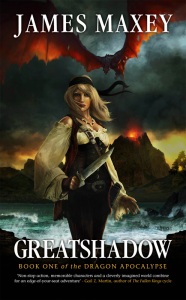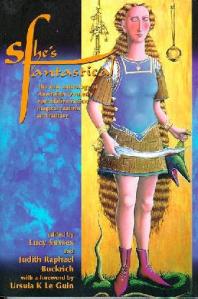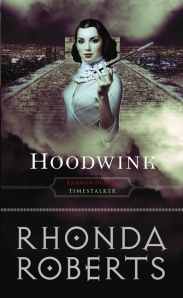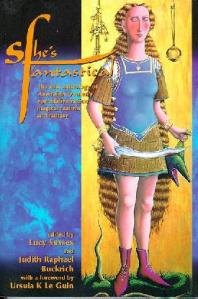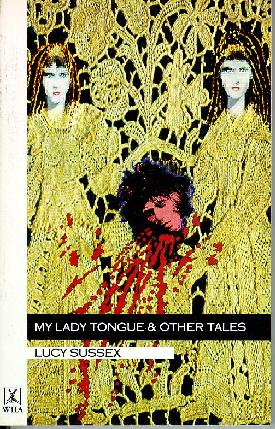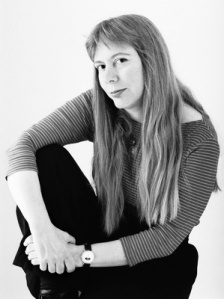I have been featuring fantastic female fantasy authors (see disclaimer) but this has morphed into interesting people in the speculative fiction world. Today I’ve invited the talented John Richards to drop by.
First a bit of background. John Richards is one of the two writers behind Outland, the new 6 part ABC comedy about a bunch of gay geeks, who are trying to hide their nerdy dark secret – they’re SF fans!
Q: I see you and Adam first came up with the idea for this show back in 2005. Do the pair of you have a long working history together? Does this make it easier when working on comedy? And (one more) do you have to go through the – No, he’s no relation to me. Our last names just happen to be almost the same? – routine when you meet people?
The name thing happens all the time – I’ve even seen us referred to as “the Richards brothers” in articles. We’ve become the new Wachowski brothers. Or siblings, as they are now. At the press launch for the 2012 ABC programming the brochure got both our surnames wrong, which was new!
I’d known Adam through comedy circles since he first started comedy (actually, before – I first saw him when I was editing a spoken-word event for Bent TV on Channel 31 and they’d got his surname wrong on the caption list). But the Outland pilot script was the first thing we did together.
Writing comedy as a team is good in that you get a lot more ideas and jokes, and bad in that you eventually want to kill each other. I think the best writing teams are the ones with rigid rules to make it work – Monty Python had a veto system in place, for example. Outland was in development for a while so the approach changed several times. In the end Adam and I co-wrote three episodes and I wrote three solo, but we were both involved in the creation and concept of the show and the characters.
[youtube=http://www.youtube.com/watch?v=mJHIygkQd1w&feature=relmfu]
Q: I see you have a background in stand-up comedy and you’ve worked for the 3RRR comedy show, The Third Ear. I bet you were the sort of little boy who would clown around in school and drive the teacher’s crazy. Was school hell for you?
I suspect I had an unusual school experience in that I was a geek and a nerd and a nancy boy, but also 6 feet tall and quite wide. So I was never bullied. I hated school – like any normal person does – but more because it was a thing you had to wade through before life could really start. I was fairly quiet in class, I think, and I was a really bad student. I just couldn’t get interested in things like calculus. I was bored, basically. At the same time I started high school I also joined The West Lodge, Perth’s Doctor Who fan club, so I spent a fair amount of time hanging out at the University Of Western Australia – I even attended some lectures, out of curiosity. But failed high school.
[youtube=http://www.youtube.com/watch?feature=player_embedded&v=kNXq2fZ9r08]
Q: My kids have grown up watching British comedy like The Young Ones, the Ab Fab, Fawlty Towers, Monty Python, Red Dwarf, The Black Adders, The IT Crowd and local shows such as Flight of the Concords and Lano and Woodley. When you were growing up what comedy shows did you watch? What inspired you?
Growing up I remember loving Australia, You’re Standing In It and Rod Quantock made me want to try stand-up. I loved his intelligent-yet-surreal pieces to camera on that. I watched all the terrible “ooh-err-missus” comedies like Are You Being Served that my parents liked, and I’ve ended up with a weird mix of disgust at their double-standards but respect for the work that went into the writing (Outland episode 3 is intended as an examination/tribute to those sorts of shows). And I remember loving WKRP In Cincinatti, which I recently rewatched to find it has aged incredibly badly. As I got a bit older the “alternative comedy” movement in the UK happened and I remember the excitement of The Young Ones and the shows that came out of that. And many, many years later – like many people – I fell in love with Spaced.
Q: I really enjoyed Outland. The dialogue was really snappy and the direction was tight. It came across as very polished. Have you been workshopping these 6 episodes for a while?
The original pilot script was written in 2005, and we made the short film in 2006. When the ABC came on board we developed 6 episodes and then worked on them in fits and starts as funding came through. So while the first episode always followed the same general plot of that original script, the scripts would change. A lot of people were involved – Adam, producer Andrea Denholm, script-editor Philip Dalkin, myself – and even now I occasionally can’t remember if a certain joke is in the finished version or an earlier draft. I would’ve liked the first episode to be even tighter, myself! First episodes are notoriously tricky – the first episode of 30 Rock is generally held to be one of the worst, even by fans of the show – and I think we did pretty well. But it also went down a few dark alleys before coming back again. So the first episode was certainly workshopped a fair bit, but often it fought back… Those people who’ve seen the short film will probably be surprised by how similar it is.
Q: I’ve worked as a graphic artist, been involved in Indy Press, am currently a writer and I know people who are musicians. It is really hard to make a living as a creative person. Did you always want to be a comedian/script writer? And if you had a child and they came to you and said – Hey, Dad, I wanna be a (insert, writer/actor/comedian/musician) – what would you say to them?
I’d say “get a real job!”. But seriously… I’d probably say “get a real job”. It is so hard. I am monstrously proud of Outland, but you spend 7 years on a project, living on two-minute-noodles and hope, and then see someone on a blog has dismissed it in one sentence, often without even bothering to watch it…
I always wanted to be a writer, originally a film writer, but in the last decade or so television has taken over as the place interesting and inventive work is happening. At least, in the US and the UK. Australia is still lagging behind on that and while I can name a dozen great, respected TV writers from overseas, in Australia there isn’t that tradition. The concept of the “show-runner” is finally coming in here but rather than being the head-writer – as it is everywhere else – it seems to have become another producer’s title. Until we embrace the idea that the writer should be able to drive and own the creative idea we’re not going to make anything to match Six Feet Under or Mad Men. Princess Pictures gets this, and that’s why people love to work for them, but it might take a little longer to catch on everywhere.
So what would I say to my fictional children, really? Nothing. Because they’re fictional.
Q: In an article by Frances Atkinson, she says:
‘beneath the sci-fi-inspired double entendres, of which there are many, Outland is a character-driven comedy about relationships – an affectionate look at how shared passions can make us feel like outsiders but also less alone.
Would you see this is the show’s underlying theme, in the same way the first 3 seasons of Being Human (UK version) was about a vampire, a werewolf and a ghost trying to stay in touch with their humanity?
I think the series is about making peace with yourself – embracing who you are. Without giving any spoilers, the characters are often having to re-examine themselves and come to terms with who they are and how they behave. And the group is both support and contrast to that. But they can’t really join the group until they’re honest about who they are and embrace that.
Lordy, that sounded deep. And there’s fisting jokes!
Q: I gather that most of the people involved in the show as SF fans. I thought it was so mainstream now everyone knew the tropes. Do you go to SF Cons and events like Supanova? Is there still a stigma around being an SF fan?
I can’t decide – I keep thinking things have changed but if you ever see something SF or fantasy being praised in the press it usually comes with a caveat – “There’s only a little bit of fantasy, so it’s OK”. When we were preparing the show we discovered that the BBC doesn’t consider Doctor Who to be science fiction – it’s officially a “family drama”. And if something is really loved then the words “science fiction” will disappear completely – no-one’s going to call Margaret Atwood a science fiction writer, no matter how many science fiction novels she writes. I remember going to see Pan’s Labyrinth and being disappointed that it was actually a straight-forward war film with three short fantasy sequences, rather than a full-on fantasy-fest as promised by the ads. But non-fans thought it WAS a full-on fantasy films – for them, three sequences in a two hour films was mind-bending.
I went to cons when I was a teenager but it’s only recently I’ve been back. I went to Aussiecon4 mostly because I have a brain-crush on Robert Shearman, and had a great time. And with my Boxcutters co-host Josh Kinal I’ve done some panels and podcasts at the Continuums. Continuua?
I haven’t been to the Supernovas/Armageddons yet, but I’d like to. They’re very “star” focussed and I’m probably more drawn to the behind-the-scenes creatives, but I think they look like a lot of fun.
[youtube=http://www.youtube.com/watch?v=Z4oBn7tNnnM&feature=relmfu]
Q: I see there’s an Outland Institute Blog. It takes a lot of work to maintain a blog. (We writers should know. We write for a living). Is this something you’ve done before for other projects, or is Outland your first venture into blogging?
Ha! I started the blog to force myself to write more – I was in one of those “Gaiman-envy” moments, I think. I thought that if I forced myself to write more, I would write more. But it’s a bit like buying an exercise bike at Christmas, isn’t it? I update it maybe two or three times a year now. It was fun to do, and it led to the radio show of the same name on Joy 94.9 in 2009 which I loved, but I suspect podcasts have ousted the blog. Podcasts and tumblr. Have you seen the horrendous internet term “tl;dr”? It means “too long – didn’t read”. It’s a celebration of stupidity. But I suspect that long-form internet writing may be on the way out.
Q: I see the full series played over two nights at the Seattle Lesbian & Gay Film Festival in October 2011. How did Outland go with a US audience? Did they have any trouble following the Australian accents or humour?
The festival found us through Continuum – they’d read about the show online. We offered two episodes two them – episode one and their choice of 2, 3 or 4 (we couldn’t decide). Keith Bacon, the programmer, came back saying he adored it and could he please see the last two so he could see how it ends! And then he asked to play the whole series across two nights, which was incredibly flattering, and the festival had me over as a guest. I stayed in a hotel room that was bigger than my flat.
I was worried about the accents and the humour, but I had seen the original short film play in Texas and that had gone well. I never expected how much the Seattle audience would love it, though. The reception was astonishing. We made people cry! That’s not something you expect for a comedy! Or want, even. At the end they gave us an award – the audience had voted it one of the highlights of the festival. It was a great festival and I loved Seattle. I want to make another series now just to have an excuse to go back.
Q: At this point, I usually I ask a couple of questions about gender and writers or comic artists. Christine Anu plays a lesbian (in a wheelchair – were you ticking boxes?). The other four regular cast members are all male, the director is male and the show is written by two males. Is it harder for a female comedian or director to get ahead?
In an ideal world there’d be more female roles in Outland, but there was a reason for each character to be there and part of the story does involve Rae being the odd one out. Which is my way of saying she’s deliberately the only woman, not accidentally – not better perhaps, but we did at least think about it. There’s also very few other roles in the series, as almost every episode focuses entirely on the five leads, but we do have three more female characters coming up and a guest appearance by Sue Ann Post. But only episode two really passes the Bechdel Test. If we make a second series I’m hoping to amend that.
It’s hard to work out issues of gender behind the camera – is it harder for a woman to get ahead as a director? I don’t know. I do know that our producers are all women, as was the DOP, the production designer, the costume designer, the sound designer, the casting agent, the editor and the accountant! And, indeed, the head of ABC comedy.
But is it harder to get a gig as a director if you’re a woman? Maybe. But most of Australia’s producers are women, so I’m not sure. How does anyone get a job in this industry? Seriously, I’d love to know…
Q: And here’s the fun question. If you could book a trip on a time machine, where and when would you go, and why?
Well, first I’d take a VCR and pop back to 1966 to record episode four of “The Tenth Planet”. When I think about time travel – which is alarmingly often – I find I often want to make fairly small jumps. Like, did the 1970s of my early childhood really smell like chemicals as I think it did? Was everything really brown? And I’d like to have a cocktail in the lower bar of the Ritz Hotel in 1942, just to see what it was like, and to go window-shopping in the 1960s. But mostly I’d go to the future, to see how everything turns out. Spoilers!
For Outland Institute Blog podcasts see here.
(the other writer) Adam Richard’s blog.
Boxcutters podcast (co-hosted by John – check out the award-winning interview with Doctor Who writers Paul Cornell and Rob Shearman)
John’s unofficial online commentary tracks for Outland
Outland Series iTunes




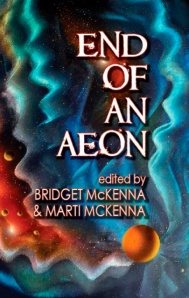


![Sebold-BabylonSteel-PhoneboothCard_thumb[1]](http://writersagainstobscurity.files.wordpress.com/2012/02/sebold-babylonsteel-phoneboothcard_thumb1.jpg?w=192)


